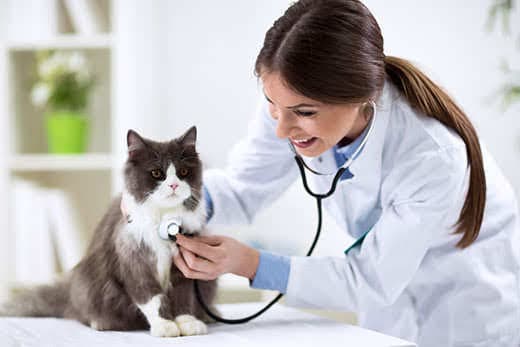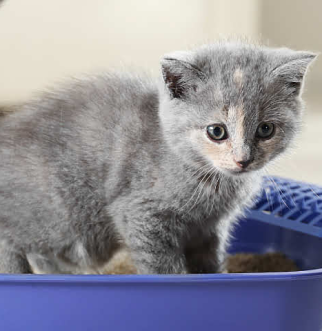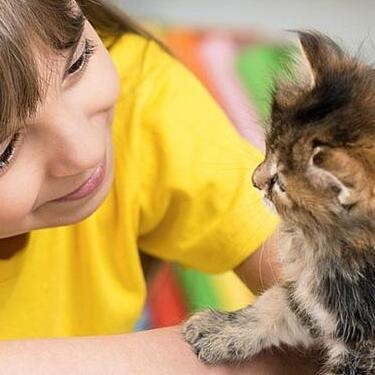
-
Find the right food for your pet
Take this quiz to see which food may be the best for your furry friend.
Find the right food for your pet
Take this quiz to see which food may be the best for your furry friend.
Featured products
 Adult Healthy Cuisine Roasted Chicken, Carrots & Spinach Stew Dog Food
Adult Healthy Cuisine Roasted Chicken, Carrots & Spinach Stew Dog FoodDelicious roasted chicken paired with tender vegetables in a succulent stew
Shop Now Adult 7+ Perfect Digestion Chicken, Whole Oats & Brown Rice Recipe Dog Food
Adult 7+ Perfect Digestion Chicken, Whole Oats & Brown Rice Recipe Dog FoodScience Diet's breakthrough nutrition supports ultimate digestive well-being & healthy microbiome for dogs age 7+
Shop Now Small & Mini Savory Stew with Chicken & Vegetables Dog Food
Small & Mini Savory Stew with Chicken & Vegetables Dog FoodA delicious complement to the nutrition of Science Diet Small & Mini 7+ dog food
Shop NowFeatured products
 Adult Savory Entrée Can Variety Pack Cat Food
Adult Savory Entrée Can Variety Pack Cat FoodPrecisely balanced nutrition with the delicious taste of savory minced chicken to help fuel the energy needs of cats during the prime of their life
Shop Now Adult 7+ Senior Vitality Chicken & Vegetable Stew Cat Food
Adult 7+ Senior Vitality Chicken & Vegetable Stew Cat FoodImproves Everyday Ability to Get Up & Go
Shop Now Adult 7+ Tender Tuna Dinner Cat Food
Adult 7+ Tender Tuna Dinner Cat FoodWith delicious chunks in a decadent gravy
Shop Now -
Dog
- Dog Tips & Articles
-
Health Category
- Weight
- Food & Environmental Sensitivities
- Urinary
- Digestive
- Joint
- Kidney
-
Life Stage
- Puppy Nutrition
- Adult Nutrition
- Senior Nutrition
Cat
- Cat Tips & Articles
-
Health Category
- Weight
- Skin & Food Sensitivities
- Urinary
- Digestive
- Kidney
-
Life Stage
- Kitten Nutrition
- Adult Nutrition
Featured articles
 Why Are Dogs and Cats So Cute?
Why Are Dogs and Cats So Cute?If waggy puppy dog tails and furry kitten yawns make you swoon, you're not alone. Why are cats so cute? And, dogs too! Let's find out!
Read More Do Dogs and Cats have Belly Buttons?
Do Dogs and Cats have Belly Buttons?Learn whether cats & dogs have belly buttons like humans, what the function is, and if there are any health concerns associated with it.
Read More Does My Pet Hate Me?
Does My Pet Hate Me?Learn tips for bonding with your pet if you've ever thought, 'My dog doesn't like me, or 'Why do I have a standoffish cat?'
Read More -


When cats suddenly or gradually refuse to eat their food, its possible that dental disease could be the reason, with mouth cancer being one of the more serious dental problems. According to Cornell Feline Health Center, oral cavity cancer is the fourth most commonly diagnosed cancer in cats. There are many different types of mouth cancer in cats, and some are more common than others.
An important part of pet parenthood is understanding how to support your furry friend's health. Read on to learn the signs of cat mouth cancer, the available treatment options and how to reduce your cat's risk of developing it.
What Causes Mouth Cancer in Cats?
The cause of mouth cancer in cats is still largely unknown. Oral squamous cell carcinoma (SCC), the most common mouth cancer found in cats, may have a viral cause. The scientific community at Today's Veterinary Practice also largely believes SCC can be caused by exposure to environmental carcinogens, such as chemicals in flea collars, consumption of canned tuna and secondhand smoke from cigarettes. A study in the Journal of Veterinary Dentistry showed that cats who wore flea collars had an increased risk of developing mouth cancer.
In addition, any chronic inflammation or irritation in the mouth, such as inflammation associated with dental disease, increases the risk of mouth cancer.

What Are the Types of Mouth Cancer in Cats?
The most common mouth cancer in cats is SCC, accounting for 70% to 80% of all cat mouth cancer. SCC creates a tumor in the mouth either in the tissues surrounding a tooth, on the underside of the tongue, on the roof of the mouth, on the tonsils or on the salivary glands.
The second most common type of oral cancer in cats, fibrosarcoma, destroys gums, bones and muscles in the mouth. Other types of feline mouth cancer include lymphoma, melanoma and osteosarcoma. These types of cancer spread from other parts of the body and are much less common than SCC or fibrosarcoma.
What Are the Signs of Cat Mouth Cancer?
In some cases, you or your veterinarian may be able to see a tumor in your cat's mouth. Other times, the signs are more subtle, and sometimes there are no signs at all. Mouth cancer can also mimic the signs of dental disease.
Some of the signs associated with feline mouth cancer include:
- Sudden loss of an apparently healthy tooth (seen in SCC)
- Bloody saliva that's red or pink-tinged
- Unexplained drooling
- Picky or decreased appetite, leaving food in the bowl or only eating soft food
- Dropping food when eating
- Plaque and tartar buildup on only one side of the mouth
- Weight loss
- Halitosis (bad breath)
- Pulling away or not allowing their head to be touched
- Swelling on one side of the face
How Is Cat Mouth Cancer Diagnosed?
If you suspect mouth cancer or any oral disease in your cat, schedule an appointment with your vet as soon as possible. They'll conduct a full physical examination and may need to sedate your cat to examine their mouth and take X-rays. Your vet may also order other tests, including bloodwork and a biopsy of any masses within the mouth to determine if it is cancer. More rarely, they may recommend an MRI or CT scan.


Tasty Tips
How Is Cat Mouth Cancer Treated?
Following a diagnosis, your vet will develop a treatment plan that will depend on the type of tumor, how far it's spread and its location in your cat's mouth. Treatment options can include surgery, radiation and chemotherapy. Cats with mouth cancer are also treated for discomfort, and if they aren't eating, they may have a temporary feeding tube placed to support them through recovery. Treatment costs can range widely depending on what therapies they undergo.
Prognosis
Benign oral tumors (ones that do not spread throughout the body) are usually successfully treated with surgery, and the prognosis is good. Malignant mouth cancer is also treated surgically, but the success of treatment varies. Unfortunately, the prognosis for cats with malignant mouth cancer is often poor because the disease typically isn't caught until the later stages, at which point it may have spread to the lymph nodes or other parts of the body.
In these circumstances, your vet or veterinary oncologist will focus on palliative care, which aims to keep your cat as comfortable and pain-free as possible.
How Can You Prevent Mouth Cancer in Cats?
While you can't protect your cat against mouth cancer entirely, you can take steps to lower the likelihood that they'll develop it. Here are some of the ways you can reduce the risk of oral cancer in your feline friend:
- Eliminate exposure to secondhand smoke.
- Ask your vet about the best flea control method for your cat.
- Get your vet's recommendation on how often to feed your cat tuna, or simply avoid sharing canned tuna with your cat.
- Brush your cat's teeth daily and, when you do, examine their face and mouth for anything suspicious.
- Seek treatment for any type of dental disease as soon as possible.
- Have your vet examine your cat's mouth yearly. If your cat has a history of dental disease and is older than 7, bump it up to twice a year.
Cat mouth cancer is easier to treat if it's caught early. If you notice any of the signs associated with feline oral cancer, schedule an appointment with your vet right away. Understanding what to look out for when it comes to your cat's health helps you be the best pet parent you can be, and it helps your cat get the care they deserve.


Dr. Sarah Wooten graduated from UC Davis School of Veterinary Medicine in 2002. A member of the American Society of Veterinary Journalists, Dr. Wooten divides her professional time between small animal practice in Greeley, Colorado, public speaking on associate issues, leadership, and client communication, and writing. She enjoys camping with her family, skiing, SCUBA, and participating in triathlons.
Related products
Related articles

What is the best food for an overweight cat? Learn all about weight control food for cats, including what's in it and how it works.

How do you get a cat to lose weight? Learn all about cat foods for weight loss, including how to choose weight control cat food and exercise tips.

Cats are naturally very clean and chances are your kitten will already have learned how to use the litter box from her mother before she comes to live with you.

Discover how to train your cat, starting with very basic first steps that both reward good behavior and discourage the bad.

Put your cat on a diet without them knowing
Our low calorie formula helps you control your cat's weight. It's packed with high-quality protein for building lean muscles, and made with purposeful ingredients for a flavorful, nutritious meal. Clinically proven antioxidants, Vitamin C+E, help promote a healthy immune system.
Put your cat on a diet without them knowing
Our low calorie formula helps you control your cat's weight. It's packed with high-quality protein for building lean muscles, and made with purposeful ingredients for a flavorful, nutritious meal. Clinically proven antioxidants, Vitamin C+E, help promote a healthy immune system.

